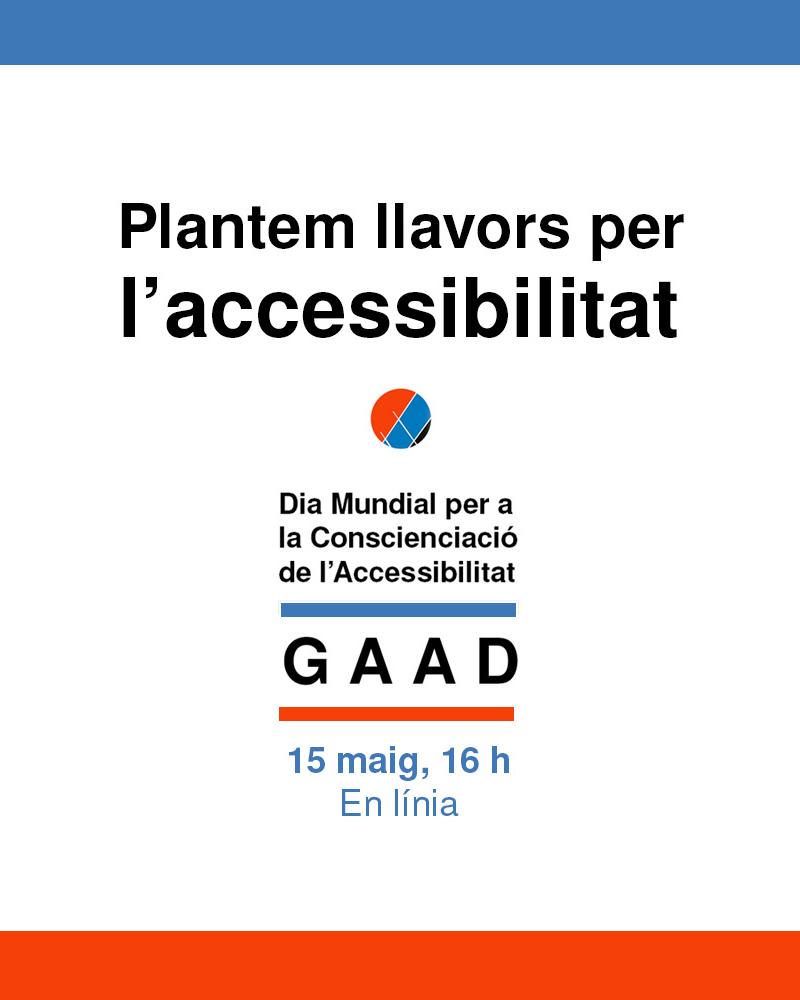AccessCat Network
The Accessibility Innovation Network of Catalonia is a knowledge transfer network. We want to offer solutions to a diverse society where everyone should have access to information and communication
Fes servir les fletxes del teclat (esquerra i dreta) per navegar entre les diferents diapositives.




On 15 May, GAAD 2025 will be celebrated worldwide, and the AccessCat Network will be taking part with the event "Sowing Seeds for Accessibility", designed to showcase the evolution of the network and the research ecosystem, including the social, business, institutional and civic fabric that makes AccessCat possible: registration form.
This won’t be the only event organised for GAAD. Check out the full programme to see all the activities involving the network’s research groups.

Who are they? What do they do? What technologies, services, and educational resources do they offer? Learn more about AFIN Barcelona, CLiC, DiCode, DIDPATRI, GIAP, GRIHO, GTI, LSC Lab, MiA, Neolcyt, NODES, QURBIS, ReLaTe, STS-b, TALN, TRACTE, TraDiLex, and TransMedia Catalonia.

Everything catalogued by the network has been developed by our groups and is based on their research. The catalogue has been expanded with new items, such as the Recommendations on the integration of accessibility in higher education and the PlanAccess service.

Discover the MOOCs (Massive Open Online Courses) developed by researchers from TransMedia Catalonia (UAB) and LSC Lab (UPF), based on their research. These courses, available online for free and accessible on all platforms (computer, mobile, tablet...), specialise in digital accessibility and Catalan Sign Language.

The 15x15: Accessibility November and 6x15: Accessibility June series, organised by AccessCat and led by researchers from the Network’s research groups, aim to raise awareness and teach basic accessibility concepts across various fields such as culture or tech. Also, the AccessCat Demos, demonstrations of the accessibility technologies developed by AccessCat researchers, are now available online.

Are you an entity, company, or institution that shares the mission, values, and objectives of the network? Do you work in the field of communication and information accessibility, or is your mission to make your products, services, and activities more accessible? Join AccessCat. All entities, companies, or institutions particularly interested in the Network’s mission and its derived results are welcome to join AccessCat without any financial commitment. We look forward to hearing from you.
